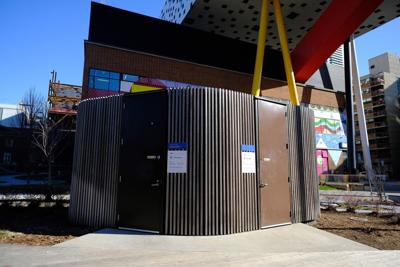More than half of Torontonians don’t believe city services are improving, even after back-to-back property tax increases passed by council, according to a new survey.
°ÕģóąðĖý of 1,138 Torontonians conducted between Aug. 1 and Aug. 18 found that 53 per cent of respondents said they either strongly or somewhat disagree that city services have improved since last year, when city hall started tracking residents’ satisfaction levels with its services.
This was the second annual survey in what’s expected to be a regular way for city hall to measure residents’ satisfaction with city services from parks, safety and cleanliness to how they feel about transportation services, recreation programs and social services.
“I think what Torontonians are saying is that they want us to focus on the things that matter to them day in and day out,” city manager Paul Johnson told reporters at city hall on Monday. “We continue to communicate where we are making those investments, and try and do a better job each and every day of demonstrating how.”
Johnson pointed to services that last year got high ratings in the survey and that this year stayed that way: “Things like libraries, our recreation programs. That’s important. You can’t slip on the things that are doing well.”
Residents generally loved šĢ―ĮÉįĮøđŲÍøâ but they also expressed deep concerns over where the city is
Meanwhile, two-thirds of Torontonians surveyed said they have confidence in the city to provide services that they need, which is an improvement from last year’s 58 per cent.
Johnson said even though residents might be unhappy with services like graffiti removal, he believes respondents’ confidence in the municipality comes from the services where the city received high rankings such as libraries, parks and recreation programs.
Martin Hrobsky, Ipsos senior vice-president of public affairs, said the satisfaction levels with recreation programs and libraries are particularly high in šĢ―ĮÉįĮøđŲÍøcompared to other polling they’ve done in large metropolitans across Canada.
The cleanliness of parks and outdoor spaces and recreation centres, however, received a bad grade from respondents.
“I’m not satisfied with the results of this survey, but year over year we’re getting a little better,” Johnson said.
This year, council approved a 6.9 per cent property tax hike to largely shore up critical investments in libraries, police, transit, housing and other services. Last year, city council approved a historic 9.5 per cent hike, partly because of rising city expenditures for transit, community housing, emergency services and other programs.
The new Ipsos survey also found close to 70 per cent of šĢ―ĮÉįĮøđŲÍøadults are happy with their quality of life in the city, which Johnson believes is an indication the city is coming out of record lows, comparatively, during the pandemic.Â
“We see some small gains, but not enough,” he said.
It’s an increase from last year’s survey, which showed half of šĢ―ĮÉįĮøđŲÍøadults felt their quality of life had worsened in the past year. More women reported the decline than men, a gender disparity reflected in this year’s findings as well.
Despite that overall improvement, however, the issues top of mind for Torontonians remain affordability, housing, transportation, crime and poverty.
Housing and affordability, in particular, are top issues Ipsos is seeing in its polls across the country and province, said Hrobsky.
Older millennials and the younger generation X in šĢ―ĮÉįĮøđŲÍøare less likely to be satisfied with their quality of life compared to younger millennials, the older generation Z and X, as well as baby boomers.
When asked to select up to three factors that make it difficult for residents to get around the city, close to half (46 per cent)Â said road construction and repair were to blame. This was followed by too many cars on the road (37 per cent) and public transit closures (23 per cent).
Bike lanes, which the Doug Ford government has vowed the remove from Bloor, Yonge and University, were picked by 18 per cent of respondents as the reason why it’s difficult to get around Toronto.
The online survey didn’t have a margin of error because the respondents weren’t chosen at random. More than 1,000 were “recruited from an online panel,” according to the survey.
“But it still reflects the adult population of Toronto,” Hrobsky said.






























To join the conversation set a first and last name in your user profile.
Sign in or register for free to join the Conversation